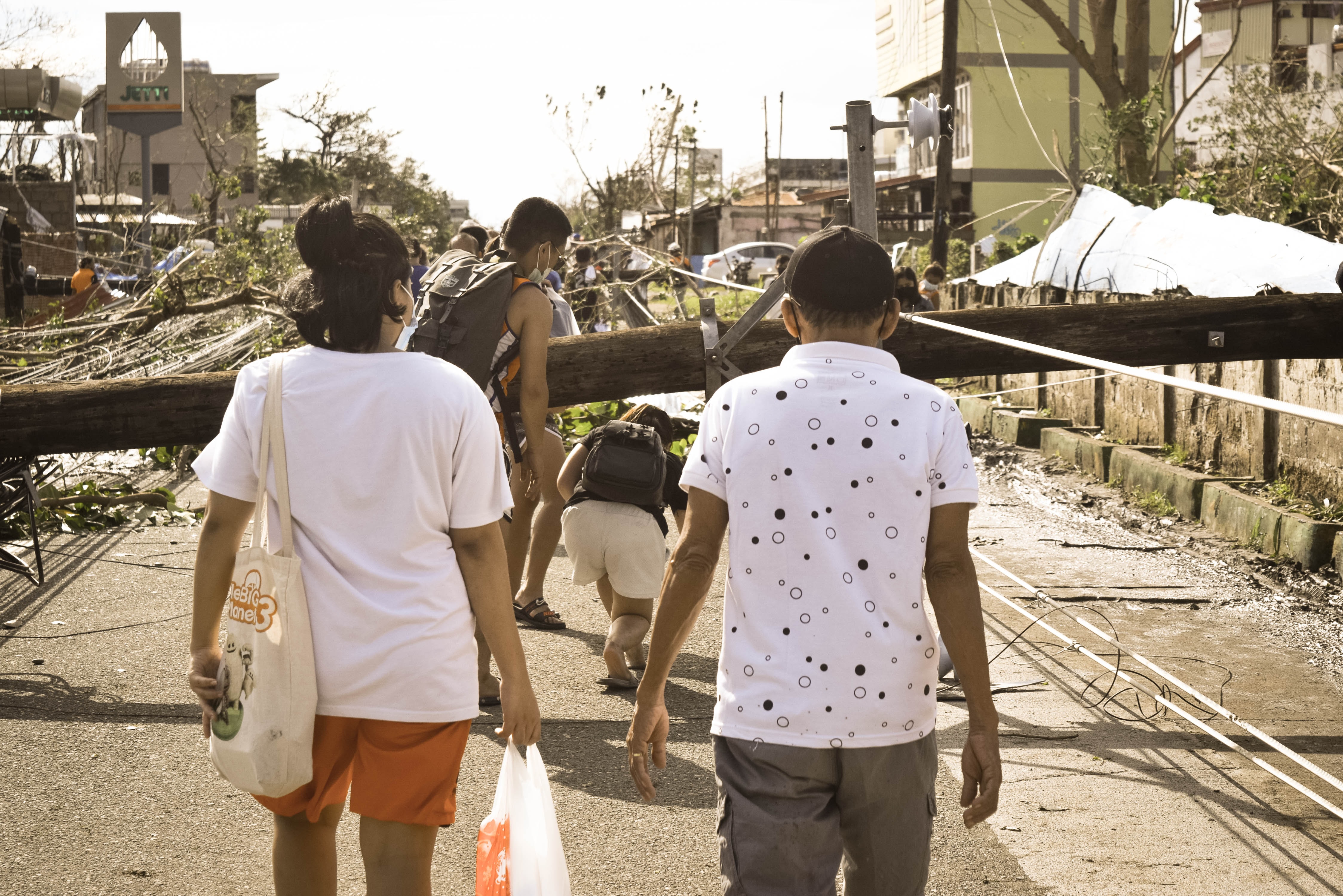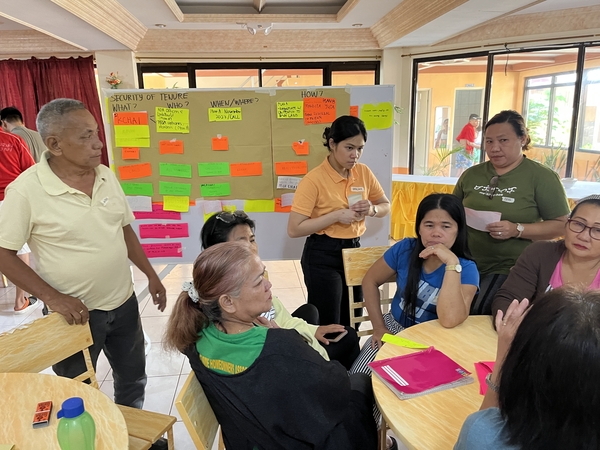- Who We Are
- How We Work
- Regional / Country Initiatives
- Legacy
- Core Themes
- Working Groups
- Portfolio & Results
- Newsroom
- Resources
Philippines: Enhancing Community Resilience

Project Overview
In the Philippines, many urban residents live in impoverished areas of major cities, struggling with tenure security and limited access to basic services. Climate change, financial shocks, land and housing rights tensions, and rapidly rising inflation have worsened these conditions.
This project is designed as a comprehensive capacity development initiative to empower urban poor settlements. It addresses tenure security challenges and advocates for people-centred development. Key focuses include enhancing the Homeless People’s Federation's capabilities in gender mainstreaming, disaster risk reduction and climate change adaptation (DRRM-CCA), youth inclusion, and savings management.
Additionally, the project includes livelihood support initiatives to bolster community resilience, aiming to bring tangible improvements to the lives of urban poor communities. By developing systems that better equip the Homeless People’s Federation, with support from the Philippine Action for Community-led Shelter Initiatives Inc. (PACSII), the project fosters context-specific and community-driven development.
This project is part of the Building Resilience in Informal Settlements Programme, a partnership between Cities Alliance and Slum Dwellers International (SDI), funded by the Swedish International Development Cooperation Agency (Sida), to support civil society organisations working in informal settlements.

Project Results: 2022-2024
Throughout the project, significant strides have been made in enhancing community resilience and capacity across various fronts. Savings and livelihood support initiatives saw the initiation of a Working Savings Policy Document following a workshop in December 2022, alongside the provision of livelihood training workshops and starter tool kits to four settlements.
Building federation capacity and leadership were bolstered through 15 federation leadership meetings, while gender mainstreaming efforts were advanced via two sensitivity training sessions. Infrastructure and basic services saw improvements with the implementation of Disaster Risk Reduction Management and Climate Change Adaptation workshops for Informal Settler Communities. 138 people were supported to address climate change and adapt to climate risks. 15 peer learning events helped 564 community members to transfer and enhance their skills.
Institutional strengthening efforts included training communities in Community-based Monitoring and Evaluations and conducting strategic planning sessions to enhance organisational capabilities and cohesion. Also, 1 city and 132 settlements were profiled.
In addition, the project supported 10,381 savers from 86 savings groups and 34 youth members. Youth also led a content creation initiative.
Empowering Urban Poor through Federation Building and Boosting Resilience in the Philippines
Urban poor communities, often excluded from formal city planning, have gained strategic influence through federation-building activities. These initiatives have helped communities mobilise, formally register as collective units and strengthen their internal capacity. This organisational structure has enabled greater collaboration with local government units, providing access to resources and opportunities previously out of reach. With legal recognition, communities can now advocate for infrastructure development, shelter planning, basic services and improved health and livelihoods.
The federation's efforts have led to tangible improvements, including access to livelihood programmes and local market development, boosting economic stability and resilience against poverty and climate change.
These efforts mark a shift to active participation in local governance. Through collaboration with government partners, urban poor communities are transforming their living conditions and becoming key stakeholders in shaping inclusive urban development. Local disaster risk reduction offices are now working closely with communities to implement disaster mitigation strategies to enhance preparedness and resilience.
Key Achievements: 2022-2024
- 86 savings groups and 10,381 savers supported
- 34 youth members mobilised and supported
- 138 people supported through networking and training to address climate change or to conserve biodiversity
- 138 people supported to better adapt to the effects of climate change
- 1 city and 132 settlements profiled
- 1 content creating initiative involving youth
- 15 regional or national level federation leadership meetings were held
- 15 peer-to-peer learning exchanges with 564 individuals
